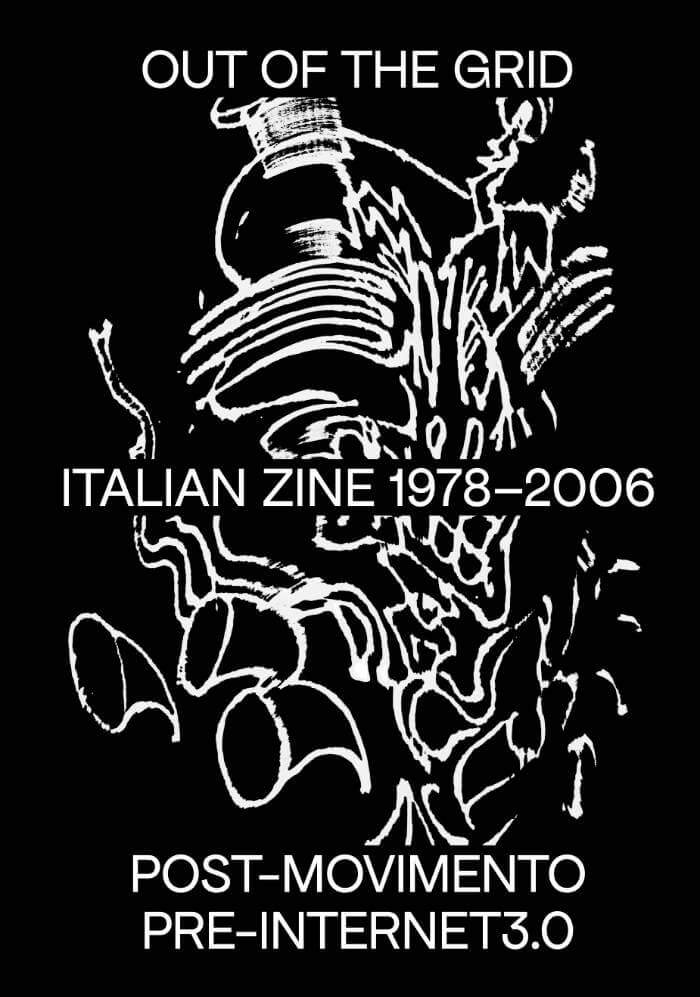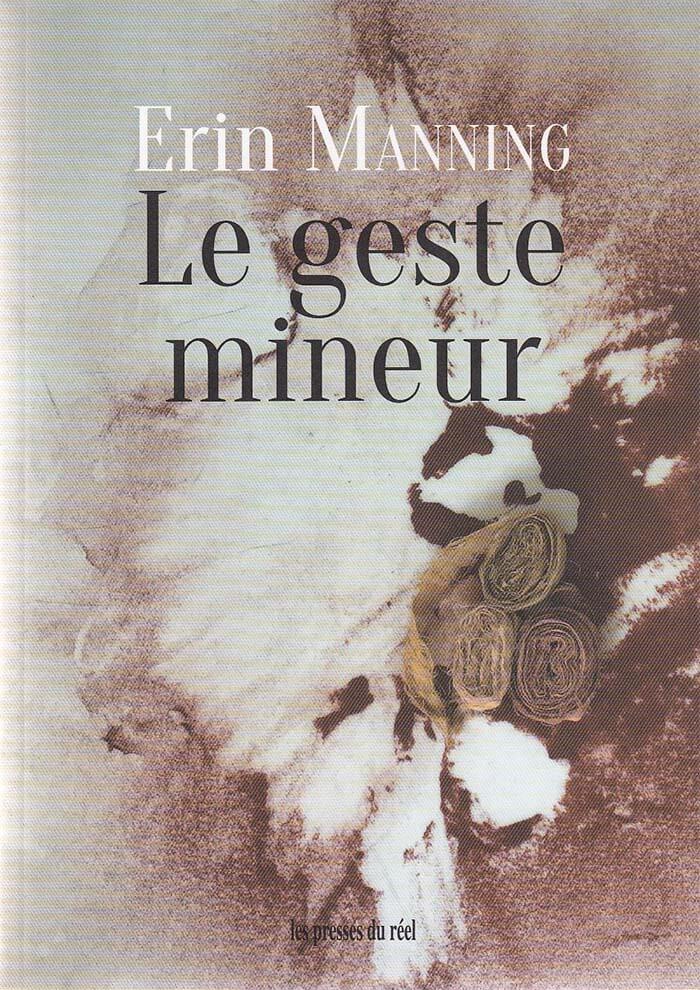Les Presses du Reel
Les Presses du Reel

Vampyroteuthis Infernalis
L'édition inédite et définitive (établie à partir des tapuscrits originaux en français) du traité fabuleux du philosophe tchéco-brésilien Vilém Flusser (1920-1991), une fiction philosophique et poétique qui, par des chemins détournés, nous confronte à la violence et à l'impasse des sociétés contemporaines.
Un monstre venu des profondeurs de l'océan, un poulpe vampire. Sa violence rappelle les nazis, ses mœurs sont libertaires et libidineuses. C'est une créature infernale, cannibale et brutale, pouvant changer de couleur à volonté, et dotée de trois pénis.
Et c'est notre cousin.
Dans cette fable fantastique, Vampyroteuthis infernalis émerge, non des abysses de l'océan, mais du plus profond de nous-mêmes pour nous tendre un miroir, nous montrer à quel point nous, les hommes, sommes ses proches parents et que nos histoires, nos sociétés, nos modes de vie ne sont, au fond, pas si différents.
Ce texte délibérément provocateur du philosophe tchéco-brésilien Vilém Flusser (1920-1991) n'est ni scientifique, ni objectif : c'est une fiction philosophique et poétique qui, par des chemins détournés, nous confronte à la violence et à l'impasse des sociétés contemporaines.
Flusser avait écrit ce texte en français (outre des versions en allemand et en portugais), et ce livre est la première édition du texte original en français. Il est accompagné des fantastiques dessins de son ami l'artiste et « zoosystémicien » français Louis Bec (1936-2018), co-auteur du livre, traduisant en images pseudo-scientifiques les chimères vampyroteuthiques.
Des essais de Marc Lenot, Élise Rigot et Florent Barrère éclairent la démarche de Flusser et de Bec.

Dance First Think Later
An encounter between dance and visual arts.
Dance First Think Later - The Thinking Body between Dance and Visual Arts follows on from the exhibition-festival Dance First Think Later - An Encounter between Dance and Visual Arts, presented in Geneva in summer 2020, documenting it with a wealth of iconography and enriching it with a critical, theoretical and historical perspective on the works and the project. Commissioned texts are devoted to the 22 artists, written by authors active in museums, festivals, art schools, independent critics and artists.
The biennial event Dance First Think Later explores the converging fields between dance, performance, visual arts and moving images. Arta Sperto, which is organising and producing the exhibition-festival and publishing the book, is developing a cross-disciplinary approach that combines the operating mechanisms of the visual and performing arts, and the respective characteristics of museums/art centres and theatres/festivals. This approach is motivated by the need to support artists whose cross-disciplinary practices come up against the way in which culture is still largely organised by field, whether in terms of cultural policies, institutions, funding or the media. Starting with the works themselves, the book offers food for thought on cross-disciplinary approaches to the contemporary arts.
With / around Halil Altindere, Alexandra Bachzetsis & Julia Born, Pauline Boudry & Renate Lorenz, Alex Cecchetti, Clément Cogitore, Dara Friedman, Gerard & Kelly, Marie-Caroline Hominal, Lenio Kaklea, La Ribot, Pierre Leguillon, Xavier Le Roy, Klara Lidén, Melanie Manchot, Olivier Mosset & Jacob Kassay, Samuel Pajand, Christodoulos Panayiotou, Alexandra Pirici, Julien Prévieux, Marinella Senatore, Gregory Stauffer, Barbara Wagner & Benjamin de Burca.

Out of the Grid – Italian Zine 1978-2006
Dafne Boggeri, Sara Serighelli
Out of the Grid presents a critical selection of 100 Italian zines from 1978 to 2006 that display a broad spectrum of social, political, aesthetic, and technological changes in the use of language and communication strategies across the territory of self publishing.
Widely mapping Italian society, particularly youth culture—over an extended period that can be symbolically defined as the "post-movement" and "pre-internet3.0"—, this outpouring of creativity gave visibility to small, imaginative and technical shifts on paper that made mimeographs, photocopiers and offset machines tremble, and often erupted into the need to communicate through other mediums. The titles selected originated from different scenes—musical, social, artistic, literary...—within which the distances between authors and readers is eliminated. To help navigate this multitude of subcultures, each zine is introduced by a profile that provides further analysis and information. No specific structure has been imposed, leaving room for the specific characteristics of each project to emerge. 100 titles ∞ paths.
Contribution by Marta Zanoni; interviews with Dafne Boggeri, Gino Gianuizzi, Stefano Gilardino, Glezös, Fabiola Naldi, Lorenza Pignatti, Pietro Rivasi, Giulia Vallicelli [Compulsive Archive].

Theresa Hak Kyung Cha – Berkeley – 1968
Première publication dédiée à l'œuvre singulière de l'artiste coréenne-américaine Theresa Hak Kyung Cha (1951-1982), à la croisée de la performance, de l'art conceptuel, de la vidéo et de la poésie, dont l'un des motifs principaux concerne sa représentation de l'Histoire, marquée par l'expérience de l'exil et de la migration, de la dislocation temporelle, culturelle, géographique et sociale.
Dans le courant de sa brève vie, Theresa Hak Kyung Cha a produit un travail artistique, littéraire et critique qui en fait une figure exemplaire, même si encore trop méconnue, de l'art contemporain américain. Est ici retracé ce parcours singulier qui se forge à la lumière d'une période exceptionnelle à la fois de l'histoire et de l'histoire de l'art. Theresa Hak Kyung Cha est à Berkeley en 1968, à Paris en 1976, à New York en 1980 et s'engage dans une pratique de l'art et de la pensée où sont brassés les concepts les plus novateurs des théories visuelles ou filmiques, de la philosophie, de la linguistique et de la littérature comparée.
Theresa Hak Kyung Cha, Berkeley, 1968 est aussi une réflexion inédite sur la représentation de territoires culturels déplacés et leur rapport à la mémoire.
Historienne de l'art contemporain, Elvan Zabunyan est maître de conférences habilitée à l'université Rennes 2 et critique d'art. Ses recherches portent sur l'art nord-américain depuis les années 1960 et notamment le tournant 1970 autour des questions raciales et féministes. Elle travaille depuis le début des années 1990 sur les problématiques issues des cultural studies, des théories postcoloniales et des études de genre en cherchant à construire, grâce à ces pensées critiques, une méthodologie de l'histoire de l'art contemporain articulée autour d'une histoire culturelle, sociale et politique. Elle a publié Black is a color, une histoire de l'art africain américain (Dis Voir, 2004), co-dirigé plusieurs livres et a écrit de nombreux articles dans des ouvrages collectifs, des catalogues d'exposition et des périodiques.

LSD #03 – A DIY Issue
The third issue of Le Signe Design (the Cahiers of the National Graphic Design Center) is about DIY practices and is based on the work of Gilles de Brock, graphic designer who became a ceramic tile manufacturer.
Do It Yourself practices are not, as is commonly assumed, limited to home improvement, nor just a way of subverting—hacking—a given social and political organization. They are also a way of looking both forward and backward, at our future and our heritage. They involve our heritage insofar as they allow constituted groups to revive past knowledge and skills threatened with extinction. They look forward in that they make it possible to create tools that do not yet exist but could.
The applications of the Do It Yourself approach range from niche practices to everything everywhere, and what they have in common is that they are always in opposition to the mass market. Some examples of this extremely diversified movement include self-publishing, cosplay, biotechnology, hacking (especially in the sense of programming), and producing digital artworks and music. Its most mediatized (and often romanticized) contemporary manifestation is what are called fablabs, but this term is too limited to cover the phenomenon in all its vast variety.
The roots of the DIY movement go back to the magazines Popular Mechanics(1902) and Mechanix Illustrated (1928), popular education publications meant for readers in small towns and the countryside who needed to be self-reliant and repair broken manufactured items rather than buying new ones. The late 1960s saw the emergence of movements motivated by environmental concerns and a distrust of consumer society. Many people—like some student co-op members, hippies in North America and punks in Europe—wanted to share resources. Stewart Brand's famous Whole Earth Catalogue, subtitled "Access to tools", launched in 1968, constitutes our contemporary reference.
This issue is appearing in parallel with the solo exhibition retracing the career of Gilles de Brock, whose production is deeply infused with the DIY spirit. Yet his practice can't be reduced to the things he has actually made. It is part of the kind of knowledge-sharing economy proclaimed in Brand's counter-culture manifesto, able to go even further today thanks to the participatory and interactive Web 2.0.
Texts by Pao Lien Djie, Maya Ober, Nina Paim, Anthony Masure, Guillaume Helleu, Tereza Bettinardi, Jean-Michel Géridan.

Walking from Scores
An anthology of text and graphic scores to be used while walking, from Fluxus to the critical works of current artists, through the tradition of experimental musicand performance, gathered and presented by Elena Biserna.
Walking from Scores is a hundred or so collection of non site-specific protocols, instructions and textual and graphic scores centred on walking, listening and playing sound in urban environment. It explores the relationship between art and the everyday, the dynamics of sound and listening in various environments and the (porous) frontiers between artists and audiences. It starts with two premises: an interest in walking envisaged as a relational practice and tactic enabling us to read and rewrite space; an interpretation of scores understood as open invitations and catalysers of action in the tradition of Fluxus event scores.
With scores and texts by Peter Ablinger, Milan Adamčiak, G. Douglas Barrett, Elena Biserna, Blank Noise, George Brecht, Cornelius Cardew, Stephen Chase, Giuseppe Chiari, Seth Cluett, Philip Corner, Viv Corringham, Bill Dietz, Amy Dignam, David Dunn, Haytham El-Wardany, Esther Ferrer, Simone Forti, Francesco Gagliardi, Jérôme Giller, Oliver Ginger, Anna & Lawrence Halprin, David Helbich, Dick Higgins, Christopher Hobbs, Jérôme Joy, katrinem, Debbie Kent, Bengt af Klintberg, James Klopfleisch, Milan Knížák, Alison Knowles, Takehisa Kosugi, Jirí Kovanda, Anne Leilehua Lanzilotti, Bob Lens, Ligia Lewis, Alvin Lucier, Walter Marchetti, Larry Miller, iLAND/Jennifer Monson, Max Neuhaus, Alisa Oleva, Pauline Oliveros, Yoko Ono, Open City & Emma Cocker, Nam June Paik, Michael Parsons, Ben Patterson, Cesare Pietroiusti, Mathias Poisson, Anna Raimondo, Pheobe riley Law, Jez riley French, Paul Sharits, Mieko Shiomi, Mark So, Standards, Nicolas Tardy, Davide Tidoni, Ultra-red, Isolde Venrooy, Carole Weber, Manfred Werder, Franziska Windisch, Ben Vautier, La Monte Young.
Elena Biserna is a scholar and independent curator based in Marseille, France. She is associate researcher at PRI SM (AMU / CNRS) and TEAMeD (Université Paris 8). Her interests are focused on listening and on contextual, "situated" art practices in relationship with urban dynamics, sociocultural processes, the public and political sphere. Her writings have appeared in several publications. As a curator, she has collaborated with different organisations and presented her projects internationally.

Le geste mineur
In this book Erin Manning extends her previous inquiries into the politics of movement to the concept of the minor gesture. The minor gesture, although it may pass almost unperceived, transforms the field of relations. More than a chance variation, less than a volition, it requires rethinking common assumptions about human agency and political action. To embrace the minor gesture's power to fashion relations, its capacity to open new modes of experience and manners of expression, is to challenge the ways in which the neurotypical image of the human devalues alternative ways of being moved by and moving through the world—in particular what Manning terms "autistic perception." Drawing on Deleuze and Guattari's schizoanalysis and Whitehead's speculative pragmatism, Manning's far-reaching analyses range from fashion to depression to the writings of autistics, in each case affirming the neurodiversity of the minor and the alternative politics it gestures toward. (The texts in this book are in French only.)
Translated from English by Aline Wiame (original title: The Minor Gesture, Duke University Press, 2016).